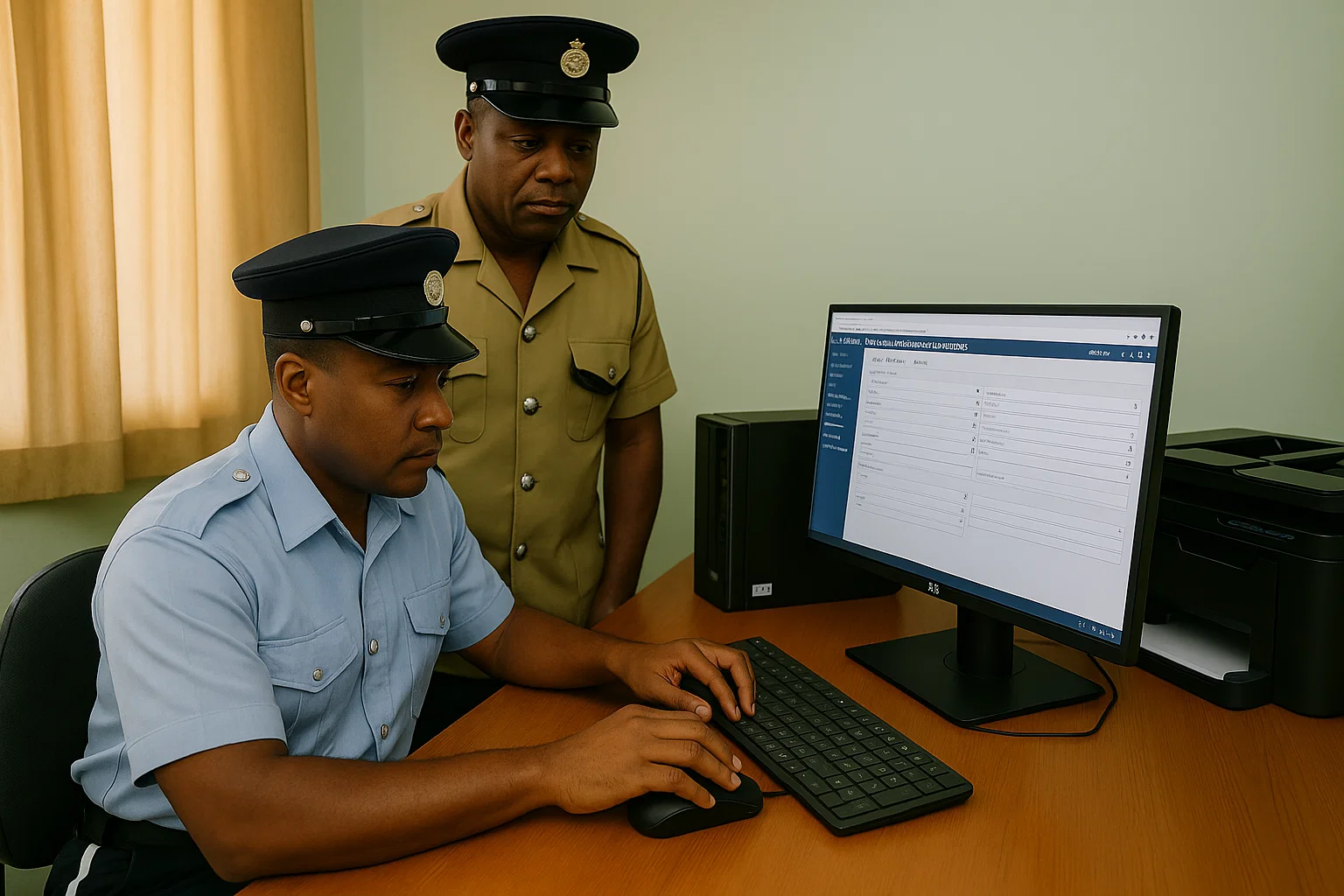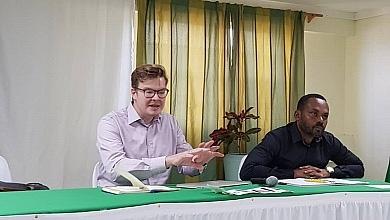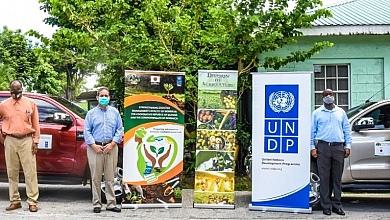Police Pilot UNDP-Backed PRMIS to Digitize Police Records Across Dominica

A quiet but consequential digital shift is wiring Dominica’s police stations for faster case intake, cleaner data, and quicker decisions. New equipment has been handed over to launch a pilot Police Records Management Information System (PRMIS), a UNDP-backed platform already in service across several Caribbean forces and now coming to the Commonwealth of Dominica Police Force.
Built with support from UNDP’s justice and citizen-security programmes (including CariSECURE), PRMIS replaces paper files with a web system that lets officers log incidents, build case files, track outcomes, and produce dashboards for crime analysis.
The same solution is live in Grenada, Antigua & Barbuda, Barbados, St. Kitts & Nevis, Guyana, and St. Vincent & the Grenadines, with UNDP describing it as a step toward evidence-based policing across the region.
At the Roseau handover, UNDP’s Barbados & Eastern Caribbean office framed the donation as part of a broader push to digitize justice chains in the sub-region, modernizing how reports, exhibits, and outcomes move from station level to prosecutors and courts. Local coverage confirmed the delivery, noting the expectation that PRMIS will streamline case management and help decision-makers spot trends faster.
Government, for its part, linked the pilot to an ongoing policy drive to professionalize the force. Officials indicated that every station will be outfitted and the platform centrally managed, an approach consistent with regional rollouts where national HQs host the core system and stations connect over secure networks.
Prior deployments show PRMIS can standardize data capture (from incident to charge to disposition) and cut the lag between a complaint and a usable, searchable record. Regionally, PRMIS has been showcased by partners such as USAID and the U.S. Embassy in Bridgetown as a crime-data upgrade that helps police plan patrols, target hotspots, and report results with fewer gaps or duplicates. That playbook, pairing software, hardware, and training, now lands in Dominica’s context, with the pilot meant to validate workflows before a full rollout.
If the pilot mirrors neighboring outcomes, Dominica can expect cleaner stats for policymakers, quicker retrieval for investigators, and fewer cracks for cases to slip through, small, technical changes that add up to a more responsive service.
This article is copyright © 2025 DOM767









